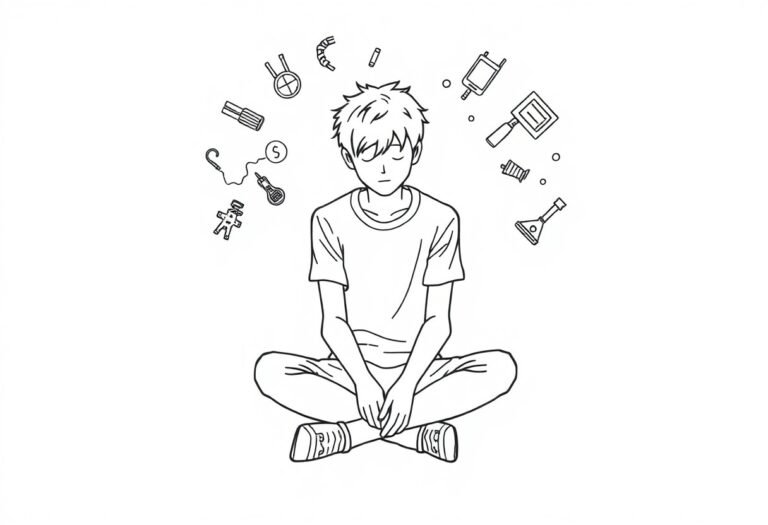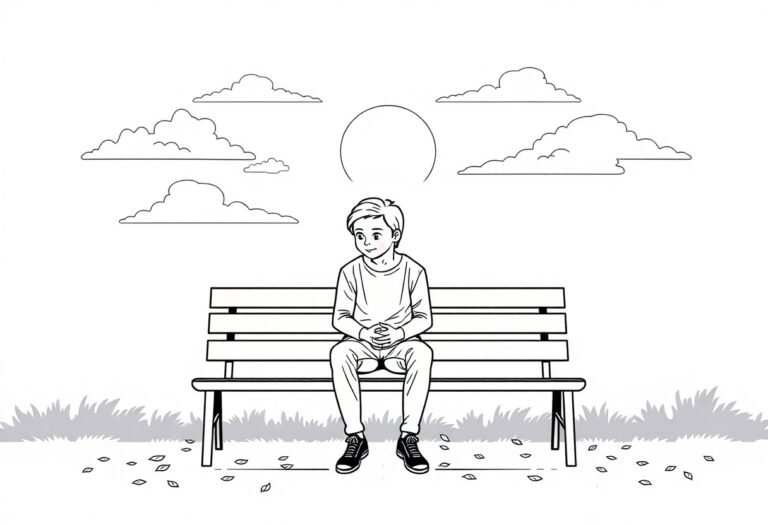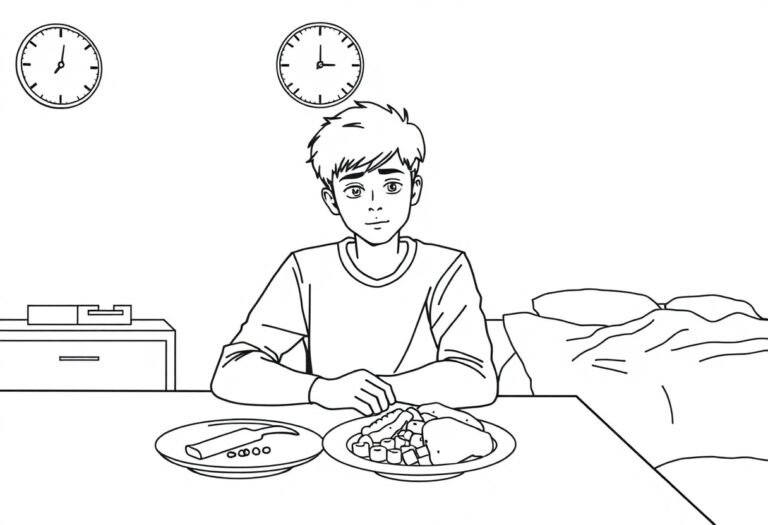How Can Parents Support Teens Facing Anxiety In School And Social Situations?
Many parents find themselves grappling with how to effectively support their teens facing anxiety in both school and social settings. Understanding the signs of anxiety is imperative, as is opening up communication channels that make your teen feel comfortable sharing their experiences. By fostering a supportive environment and teaching practical coping strategies, you can help your teen navigate their challenges, ensuring they know they’re not alone in this struggle. In this post, you’ll discover effective approaches to create a nurturing atmosphere that promotes your teen’s mental well-being while addressing teens facing anxiety.
Key Takeaways:
- Encourage open communication by creating a safe space for teens to express their feelings and concerns about school and social situations.
- Help teens develop coping strategies, such as mindfulness techniques, deep breathing exercises, or positive self-talk, to manage anxiety effectively.
- Assist in establishing a structured routine that balances schoolwork, extracurricular activities, and downtime, promoting a sense of stability.
- Foster social connections by encouraging participation in group activities or clubs where teens can build friendships in a supportive environment.
- Seek professional help if anxiety significantly impacts their daily life, exploring options like counselling or therapy as additional support.

Understanding Teen Anxiety
The teenage years can be especially challenging for young individuals as they navigate complex social dynamics and academic pressures. Anxiety during this developmental stage is common and can manifest in various ways, making it important for you to understand its nuances. By recognising the underlying causes and typical signs, you can support your teen more effectively as they cope with these feelings and experiences.
Causes of Anxiety in Teens
Causes of anxiety in teens can vary widely and often include a mix of genetic, environmental, and social factors. Pressures from school, family expectations, and the desire to fit in can contribute to heightened levels of anxiety. Additionally, past experiences such as trauma or significant life changes may also trigger anxiety symptoms, making your support a key element in helping them manage these feelings.
Signs and Symptoms of Anxiety
About 70% of teens may show signs of anxiety, which can present in different ways. These can range from physical symptoms like headaches and stomachaches to emotional signs such as excessive worry and irritability. Recognising these signs in your teen can be the first step toward getting them the help they need.
Hence, be vigilant for both emotional and physical symptoms. Your teen may express feelings of restlessness, fatigue, or difficulty concentrating, which can severely impact academic performance. They might also exhibit avoidance behaviours, steering clear of social gatherings or classes that trigger their anxiety. It is important to engage them in conversations and monitor for these indicators, as early intervention can significantly alter their anxiety trajectory and overall well-being.
The Role of Parents
You play a vital role in your teen’s journey to navigate anxiety in school and social settings. Your support, guidance, and understanding can significantly impact their confidence and coping strategies. By being proactive and attentive, you can help your teen build the resilience needed to tackle these challenges.
Open Communication
When creating an open dialogue with your teen, it’s imperative to encourage them to express their feelings without fear of judgment. Make yourself available for discussions, listen actively, and reassure them that it’s okay to share their worries. This openness fosters a safe environment, enabling them to feel comfortable discussing their anxiety.
Building Trust and Support
At the heart of supporting your teen is the need to establish a strong bond built on trust. Be approachable and empathetic, allowing them to share their experiences freely. Show your support by validating their feelings, acknowledging their struggles, and offering solutions when appropriate.
Support from you is indispensable as it provides your teen with a safety net to express themselves and seek assistance. Building a trusting relationship means being patient, attentive, and nonjudgmental. Engaging in regular conversations where you discuss their day or share activities can foster a deep connection, which, in turn, can help them feel valued and understood. Your consistent presence assures them that they are not alone in facing their challenges, empowering them with the strength to overcome anxiety in various settings.
Coping Strategies for Teens
Once again, it’s important to explore effective coping strategies that you can help your teen adopt to manage their anxiety. Encouraging them to identify their triggers and engage in healthier responses can empower them. Together, you can experiment with various techniques and find what works best for you, ultimately building resilience against anxiety in academic and social situations.
Mindfulness and Relaxation Techniques
Among the most effective tools for managing anxiety are mindfulness and relaxation techniques. Encourage your teen to practice deep breathing exercises, meditation, or yoga, which can help them focus on the present moment and reduce feelings of anxiety. Apps and online resources can make these practices accessible and engaging, allowing them to develop a personalised routine.
Encouraging Healthy Routines
Any healthy routine can significantly contribute to your teen’s ability to cope with anxiety. Ensure they have a balanced schedule that includes adequate sleep, regular physical activity, and nutritious meals. Establishing consistent daily patterns can lead to greater emotional stability and overall well-being.
To further support your teen, work on developing a daily structure that allows for flexibility while prioritising important activities. This includes ensuring they get enough rest to function optimally, as sleep deprivation can heighten anxiety symptoms. Encourage participation in a sport or physical activity, which not only promotes health but also provides a social outlet. Incorporating wholesome foods into their diet can also boost mood and energy levels, reinforcing a positive cycle. A strong foundation of healthy routines will empower your teen to handle stress and anxiety more effectively.
Navigating School Environments
Not all school environments are equally supportive, and this can profoundly affect your teen’s anxiety levels. It’s imperative for you to advocate for an understanding and flexible atmosphere within the school to help your teen thrive. Encourage open communication between your teen and their teachers, and speak to school staff about any accommodations that might alleviate their anxiety.
Coordination with Teachers and Counsellors
The best way to support your teen is through effective collaboration with their teachers and school counsellors. Initiate conversations to keep them informed about your teen’s anxiety, and discuss any tailored strategies that can help your teen feel more comfortable and engaged in class.
Creating a Supportive Learning Environment
Along with communication, fostering a supportive learning environment is vital. This may include advocating for smaller class sizes, flexible deadlines, or alternative assessment methods that cater to your teen’s needs. Open dialogue about these accommodations with the school can help ensure your teen receives the understanding and support they need.
Coordination with school staff is imperative for your teen’s success. Advocate for policies that promote a safe and understanding atmosphere in the classroom, which can significantly impact your teen’s ability to manage anxiety. Encourage constructive feedback from teachers and suggest initiatives that allow students to express their feelings. Building a relationship with school counsellors can also provide a crucial outlet and resource for your teen, enabling them to navigate challenges more effectively.
Social Support Networks
For teens facing anxiety, social support networks can play a vital role in their emotional well-being. You’ll want to foster connections with peers, family, and mentors who can offer understanding and encouragement. Building these networks not only provides a safety net for your child but also instils a sense of belonging, making them feel less isolated in their struggles.
Encouraging Positive Peer Relationships
Beside being supportive at home, encourage your teen to cultivate healthy friendships. You can guide them in finding peers who share interests and values, as these connections can nurture a positive environment. Positive relationships can help alleviate anxiety by providing companionship and understanding, allowing your teen to navigate school and social situations confidently.
Engaging with Community Resources
Before stepping into additional support, consider connecting with community resources that can benefit your teen. Reach out to local groups, workshops, and counselling services that specialise in teen mental health. These resources are designed to offer support, education, and coping strategies, all of which can empower your teen to manage their anxiety.
Positive engagement with community resources can significantly enhance your teen’s social support network. By actively participating in local support groups, workshops, or school counselling services, your teen can interact with peers who share similar experiences. This interaction not only fosters mutual understanding but also equips your teen with effective coping strategies. Keep in mind that engaging with professionals can further aid in recognising and addressing underlying issues, ensuring your teen feels supported through their challenges.
Professional Resources
Keep in mind that accessing professional resources can significantly aid your teen in managing anxiety. Psychologists, licensed counsellors, and school-based mental health services can provide tailored support that fits your teen’s specific needs, facilitating their journey to cope with stressors in school and social situations.
When to Seek Therapy
Besides a noticeable change in behaviour or academic performance, therapy might be necessary if your teen expresses persistent feelings of anxiety or panic. Signs like social withdrawal, mood swings, or difficulty in completing daily tasks can indicate a need for professional intervention.
Types of Support Services Available
Seek out various support services that cater to your teen’s unique challenges. Options include:
| School Counselors | Available for immediate support during school hours. |
| Therapists | Provide individualized therapy sessions. |
| Support Groups | Encourage social interaction with peers facing similar challenges. |
| Hotlines | Available for immediate crisis support. |
| Online Resources | Offer various coping strategies. |
The combination of these resources can create a supportive environment that greatly facilitates your teen’s emotional health.
Even as you explore options, consider that each service has unique benefits and applications. For example, school counsellors provide direct support and advocacy, while therapists offer a confidential space for deeper exploration of feelings. Additionally, support groups can help your teen connect with others, and hotlines serve as a safety net during crises. Online resources can supplement these services, providing tips for self-help and coping techniques. The range of services available ensures that your teen receives the best care suited to their individual situation.
| School Services | On-site mental health support. |
| Community Clinics | Affordable therapy for families. |
| Private Practices | Specialized therapists for complex issues. |
| Peer Support Programs | Encourage shared experiences among teens. |
| Teletherapy | Convenient online mental health support. |
The diversity in available resources ensures you can find the right fit for your teen’s needs.
Conclusion
Drawing together various strategies can significantly enhance your ability to support your teen facing anxiety in school and social situations. You can create an open line of communication, encourage healthy coping mechanisms, and promote gradual exposure to anxiety-inducing scenarios. Additionally, collaborating with teachers and school counsellors can provide your child with extra resources. By understanding and validating your teen’s feelings, you empower them to manage their anxiety effectively and build resilience for the future.
FAQ
Q: What are some common signs of anxiety in teens that parents should look for?
A: Teens facing anxiety may exhibit a variety of signs, including withdrawal from social activities, changes in sleeping or eating patterns, irritability, constant worry about school performance, and physical symptoms such as headaches or stomachaches. Parents should also pay attention to any drop in academic performance or a reluctance to attend school.
Q: How can parents create a supportive environment for their anxious teen?
A: Parents can foster a supportive environment by actively listening to their teen without judgment, validating their feelings, and encouraging open communication about their worries. Establishing a daily routine can also provide structure and predictability, which can help reduce anxiety. Additionally, providing a safe space for their teen to express emotions and thoughts can be beneficial.
Q: What role does a professional help play in supporting a teen with anxiety?
A: Seeking professional help, such as a therapist or counsellor, can provide teens with effective coping strategies and tools to manage their anxiety. Therapy options like cognitive-behavioural therapy (CBT) specifically target anxiety and help teens reframe negative thoughts. Parents can support this process by being involved in their teen’s therapy, if appropriate, and encouraging them to maintain their counselling appointments.
Q: How can parents help their teen develop effective coping strategies for anxiety?
A: Parents can assist their teen in developing coping strategies by encouraging practices such as mindfulness, deep breathing exercises, or journaling. Engaging in physical activity together, such as going for walks or participating in sports, can also help alleviate anxiety. Additionally, teaching skills like problem-solving and time management can empower teens to handle stressful situations more effectively.
Q: What should parents do if their teen’s anxiety is significantly impacting their daily life?
A: If a teen’s anxiety is significantly affecting their ability to function, such as attending school or maintaining friendships, parents should consider seeking immediate help from a mental health professional. Openly discussing the situation with the teen and ensuring they feel supported will encourage them to express their fears. Collaboration with school staff can also be beneficial in creating accommodations that support the teen’s educational experience.







